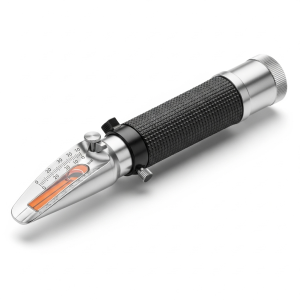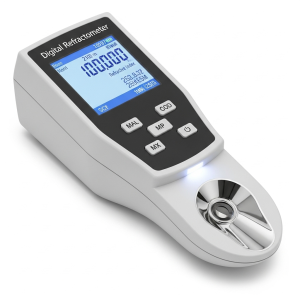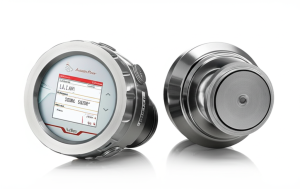What Is a Refractometer? A Complete Guide for Beginners
If you’ve ever wondered, “What is a refractometer?”, you’re not alone. This compact yet powerful instrument plays a crucial role in industrial, automotive, and chemical processes—and at Can Star Industrial, we supply top-quality refractometers to ensure accuracy and performance where it matters most.
In this blog, we’ll explore how a refractometer works, what it’s used for, and why it’s an essential tool in your industrial toolkit.
What Is a Refractometer?
A refractometer is a scientific instrument used to measure the refractive index of a liquid or substance. The refractive index is how much light bends or refracts when it moves from one medium (like air) into another (like liquid). By measuring this bending, refractometers can determine concentrations of dissolved substances such as sugar, salt, or even alcohol.
Refractometers are commonly used in industries such as:
- Food and beverage (to measure sugar levels in juices or wine)
- Aquaculture and marine care (to monitor salinity in saltwater)
- Agriculture (to assess crop ripeness)
- Clinical laboratories (to test bodily fluids)
- Automotive (to check antifreeze or battery fluid concentration)
How Does a Refractometer Work?
Refractometers operate based on the principle of light refraction. When light enters a substance at an angle, it changes speed and direction. The amount of refraction depends on the concentration of the substance.
Most handheld refractometers are simple to use:
- Place a few drops of liquid on the glass prism.
- Close the cover to spread the liquid evenly.
- Look through the eyepiece toward a light source.
- Read the value where the light and dark areas meet on the scale.
This reading will correspond to specific units such as:
- Brix (for sugar content)
- Salinity (ppt or specific gravity)
- Refractive Index (RI)
Types of Refractometers
There are several types of refractometers available, each designed for specific applications:
1. Handheld Analog Refractometer

- The most basic and widely used
- Requires manual reading
- Ideal for field testing and quick results
2. Digital Refractometer

- Uses digital sensors for accurate readings
- Often temperature-compensated
- Ideal for laboratory or industrial use
3. Inline Refractometer

- Installed directly into a production line
- Provides continuous readings in real time
- Common in food processing and chemical industries
Why Use a Refractometer?
Refractometers provide quick, accurate, and non-destructive measurements. They’re especially helpful in:
- Wine-making: To measure grape sugar levels (°Brix) for optimal fermentation
- Brewing: To monitor wort concentration
- Aquarium care: To maintain proper salinity for marine life
- Farming: To assess fruit ripeness before harvest
Their portability, affordability, and ease of use make them ideal tools for professionals and hobbyists alike.
How to Choose the Right Refractometer
When choosing a refractometer, consider the following:
- Application: What are you measuring sugar, salt, or chemicals?
- Scale: Ensure the device includes the appropriate measurement scale.
- Temperature Compensation: Look for models with ATC (Automatic Temperature Compensation) to improve accuracy.
- Digital vs. Analog: Digital models are more accurate, while analog is more affordable.
Tips for Accurate Measurements
To get the most out of your refractometer:
- Always calibrate before use using distilled water or a calibration solution.
- Clean the prism thoroughly between samples to avoid cross-contamination.
- Take measurements at room temperature when possible.
So, what is a refractometer? It’s a simple yet powerful tool that measures the refractive index to determine the concentration of substances in a liquid. Whether you’re a winemaker, fish tank enthusiast, or farmer, understanding how this device works can help you make more informed decisions. For high-quality and reliable refractometers, trust Can Star Industrial your partner in precision and performance.
